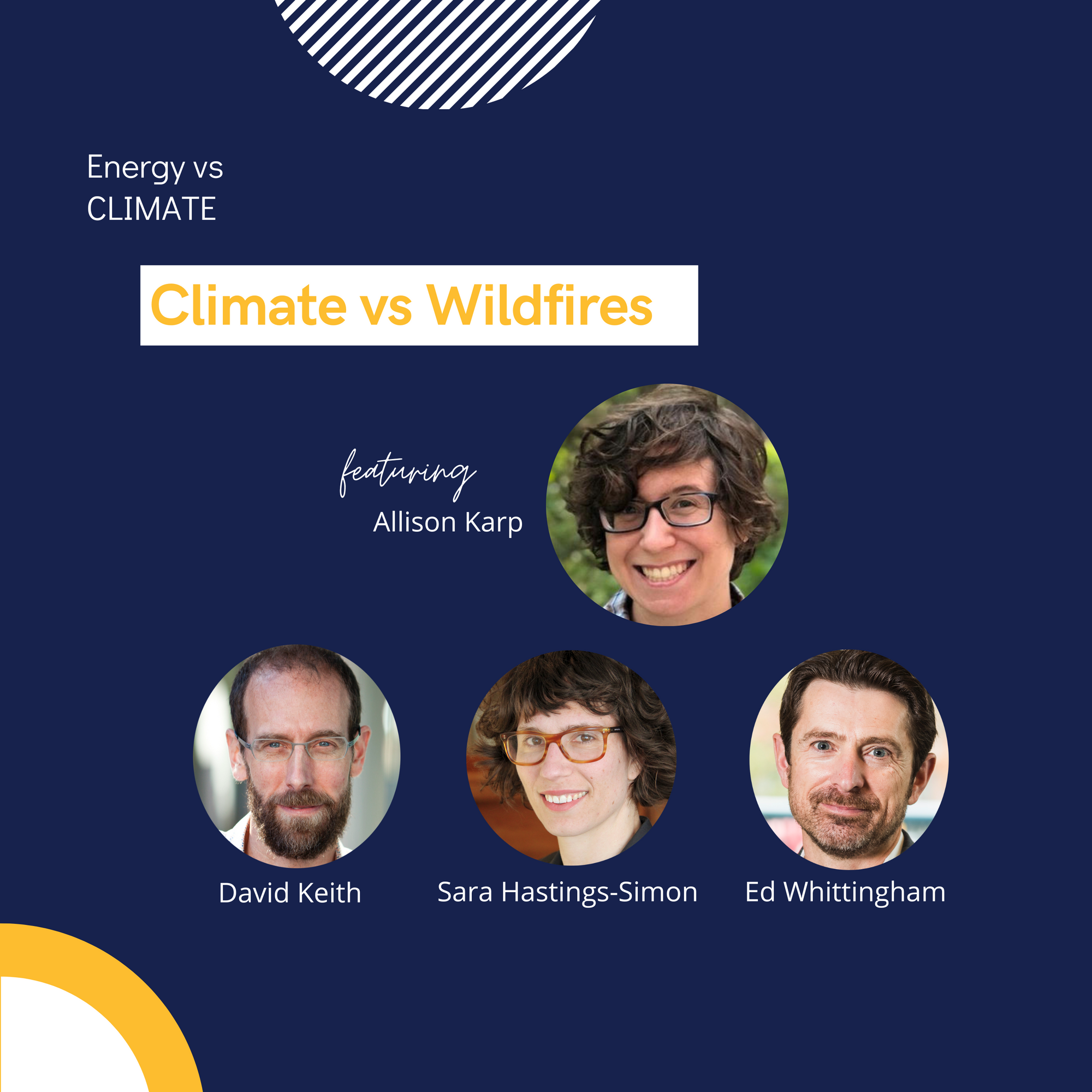Climate vs Wildfires

With the record-setting wildfires that Canada has been experiencing this summer, we decided to produce a special summer edition of Energy vs Climate to dig into the topic. We're joined by Allison Karp, a molecular paleoecologist and Post Doctoral fellow at Yale University and Brown University. Starting in July 2024, Allison will be joining David at the University of Chicago as an Assistant Professor in the Department of Geophysical Sciences.
Her research uses fossil molecules preserved in sediments to examine how fire has changed across geologic timescales and the consequences of shifts in fire activity on global carbon cycling.
We had a wide-ranging conversation with Allison about fire and climate change, including how much of this year's wildfires we can attribute to climate change. As usual, there are no easy answers, but we hope it will expand your thinking and understanding at a time when we're still struggling to get these fires under control. Our thoughts go out to all of those who have been forced out of their homes, and those working to fight the fires.
EPISODE NOTES:
@1:23Allison Karp, paleoecologist at Yale and Brown University
@11:04 Earliest evidence of wildfire found in Wales 430 million years ago, BBC, original journal article here
@11:33 Indigenous fire management and traditional knowledge
@15:20 Record-setting climate enabled the extraordinary 2020 fire season in the western United States
@16:31 Data attribution is political: Trump Blames Wildfires on Poor Forest Management. Biden Focuses on Climate Change
@19:25 Politics aside, 1/2 to 2/3 of wildfires attributed to climate change due to increased aridity
@22:00 Economic toll and health impacts of wildfires
@28:55 Estimated 25% increase in particulate matter at size less than 2.5 micrometers (PM2.5) attributed to wildfires
@26:02 Dr. Frances Moore and the shifting baseline syndrome
More from paleoecologist, Allison Karp:
- Fire contributing to grasslands expansion millions of years ago
- Fire activity in savannas responded differently to increases in rainfall 1000s of years ago
About your co-hosts:
Allison Karp is a molecular paleoecologist and Post Doctoral fellow at Yale University and Brown University. Starting in July of 2024, Allison will be an Assistant Professor in the Department of Geophysical Sciences at the University of Chicago. Her research uses fossil molecules preserved in sediments to examine how fire as an ecological process has changed across geologic timescales and the consequences of shifts in fire activity on global carbon cycling.
David Keith is Professor and Founding Faculty Director, Climate Systems Engineering Initiative at the University of Chicago. He is the founder of Carbon Engineering and was formerly a professor at Harvard University and the University of Calgary. He splits his time between Canmore and Chicago.
Sara Hastings-Simon studies energy transitions at the intersection of policy, business, and technology. She’s a policy wonk, a physicist turned management consultant, and a professor at the University of Calgary and Director of the Master of Science in Sustainable Energy Development.
Ed Whittingham is a clean energy policy/finance consultant, fellow at the Public Policy Forum and a mentor with the Creative Destruction Lab. He is the former executive director of the Pembina Institute.

